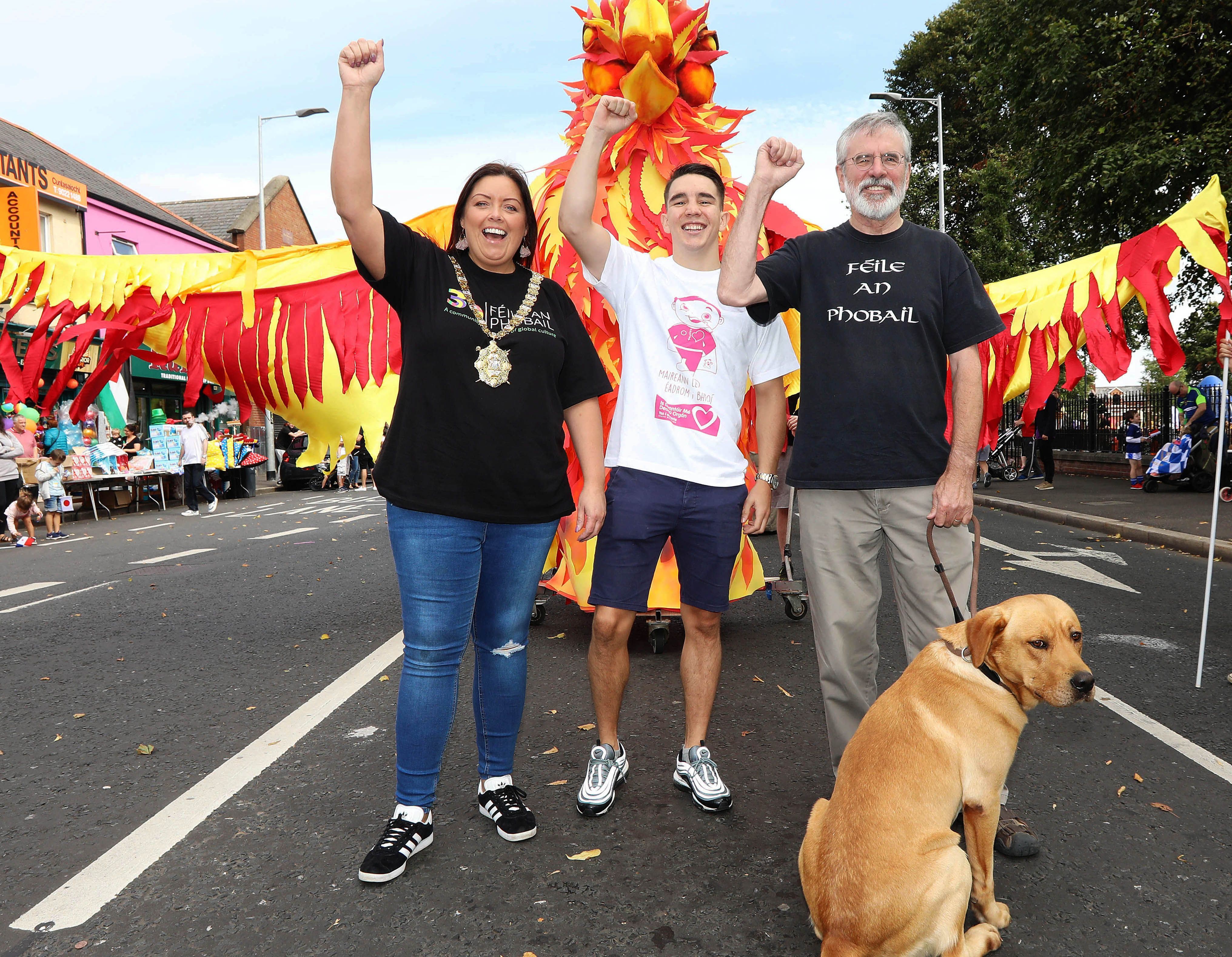An amazing community that was determined to triumph
Congratulations and well done to the Andersonstown News on your 50th anniversary. It is no mean feat to sustain a newspaper of this quality for all this time, especially one based on the progressive community and egalitarian values espoused by the Andytown News. I am honoured to contribute to this special anniversary edition.
The paper suggested I write a piece on a subject of my choice but not about the Andersonstown News. The note suggested a look at how ‘West Belfast has changed dramatically in the last half-century’.
Andersontown News has been a central part of that change. But so much has happened since Basil McLaughlin and Davy Rice, Christy McGonigle, Pat Braniff and later Séamus Mac Seáin, Seán Mac Seáin and Séamus Mac Aindreasa, founded this fine newspaper.
So it was difficult to decide what to focus on. Much of the change has been achieved through campaigning, direct actions, get-up-and-go initiatives by local citizens and some smart strategic thinking.
But where to start? To begin let’s acknowledge that much more still needs to be done to eradicate poverty and disadvantage in West Belfast and to improve the lives of people here. This includes tackling sectarianism, division and segregation, as well as so-called peace walls.
All of this is an ongoing imperative but that’s what a process of societal change is. It is a process which never ends. Struggle is continuous. Because of partition and the union with Britain local imperatives on their own are not enough. They need to be developed within an understanding of the need to end the union and to create a new national democracy on our island.
A British government will never act in the interests of families and workers here. We need the right to determine our own future and to realise our full potential. That by the way is one of the big changes of the last 50 years. We now have a peaceful way to do that based on the Good Friday Agreement.
The end to conflict and the peace process which produced so many opportunities, despite all the obstacles placed in its way, is another biggie. West Belfast contributed to all this progress. But of course we cannot wait until the union ends to make life better for citizens. We need to think nationally and act locally.
The history of the last 50 years in West Belfast is full of successful examples of this. From the rebuilding of Bombay Street to victories, decades later, of demolition campaigns in Divis, Moyard, Turf Lodge, Springhill, the Shankill, Beechmount and other places. The demilitarisation of our communities and the release of prisoners as part of the Good Friday Agreement.
The preservation and development of the Bog Meadows, Colin Glen and the Belfast Hills, including the end of quarrying there. The provision of sporting facilities including for Gaelic Games. The efforts to improve the architecture of our public places with new buildings like Radio Fáilte, Áras na bhFál, Gael-Ionad Mhic Goill or Áras Uí Chonghaile, and the saving of older ones like Broadway Presbyterian Church, now Cúlturlann McAdam Ó Fiaich, Conway Mill and St Comgall’s School.
The improvements in our schools. The success of Féile an Phobail and its growth and outreach despite all the odds. There are many other examples of changes in the last fifty years like Fáilte Feirste Thiar the local tourism development agency. Central to this is the growth in the use of the Irish language and the establishment of a Gaeltacht Quarter in West Belfast.
An Cheathrú Ghaeltachta has its roots in the West Belfast and Greater Shankill Task Force report. It was published in February 2002 and contained 150 recommendations. The report was a response to the great problems of deprivation and disadvantage and poverty that exists within west Belfast.
By bringing together the community, business, educators, and the wide range of statutory agencies and government, it was possible to produce a joined-up strategy capable of putting in place the resources necessary to raise the quality of people’s lives. In essence our goal was to build on the positive aspects of west Belfast through our existing local skills, while encouraging inward investment and regeneration.
Padráic White did mighty work as did Clive Dutton, Birmingham City Council Director of Regeneration who produced The Dutton Report, commissioned by The Northern Executive in 2003 and building on the Task Force recommendations. Local examples of this innovation already existed.
For example the West Belfast Taxi Association – the Black Taxis – is an example of local people coming together in difficult circumstances, identifying a community need and then having the courage and determination to build a transport system that now employs local men and women.









